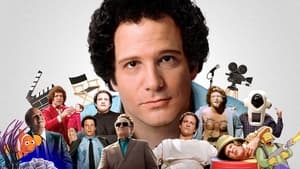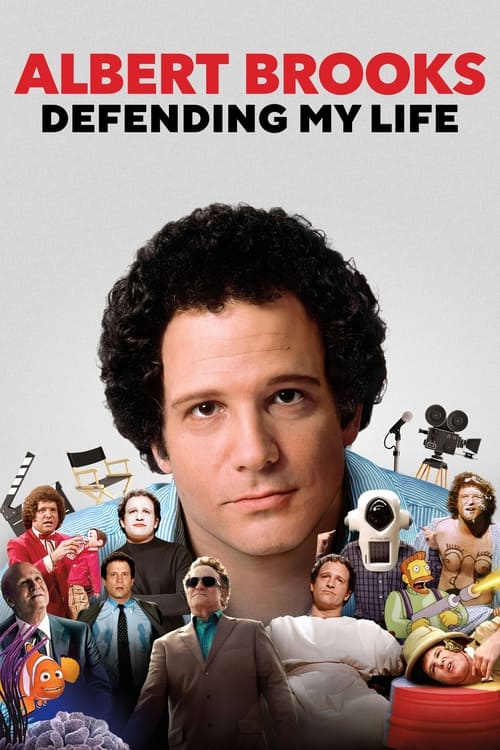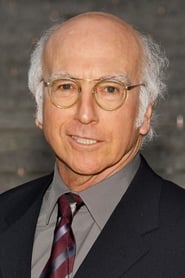Cast
View AllAlbert Brooks
as Self
Rob Reiner
as Self
Chris Rock
as Self
Conan O'Brien
as Self
Wanda Sykes
as Self
Jon Stewart
as Self
Ben Stiller
as Self
Steven Spielberg
as Self
Sarah Silverman
as Self
David Letterman
as Self
Larry David
as Self
Jonah Hill
as Self
Judd Apatow
as Self
Sharon Stone
as Self
Brian Williams
as Self
Crew
Director
- Rob Reiner
Producer
- Rob Reiner
- Matthew George
- Michele Reiner
Reviews
Brent Marchant
When someone helps to shift the direction of something, regardless of the milieu involved, there’s a natural inclination to want to celebrate that individual’s contributions. In the area of stand-up comedy, one of the names that frequently comes to mind is Albert Brooks (born Albert Einstein – really). In the 1970s, his inventiveness took comedy in a new direction, inspiring others to follow suit and forever changing the art form, and this new HBO documentary from Brooks’s lifelong friend, director Rob Reiner, is an apparently sincere attempt at paying tribute to the writer-actor-comedian-director. Unfortunately, this effort misses the mark in many respects (though it admittedly improves markedly in the picture’s back half). Perhaps the biggest issue here is Reiner himself; as someone who has known Brooks since high school, he’s probably too close to the material to present a balanced view of his subject. Many of his interview sequences with Brooks come across as two old friends reminiscing about the past without providing sufficient back story information for the viewers, the result being a vehicle that’s a little too “inside” for audiences to fully appreciate the point of their conversations. What’s more, the film has an annoying tendency to gush, especially when it comes to the comedian’s early routines, work that may have been cutting-edge when first introduced but that, frankly, hasn’t withstood the test of time. Toning down the hype here would help immeasurably, particularly in the film’s interview segments with peers and admirers (including such entertainment industry heavy hitters as Chris Rock, Wanda Sykes, Ben Stiller, Sarah Silverman, Larry David, David Letterman, Conan O’Brien, Jon Stewart, Stephen Spielberg, James L. Brooks and Judd Apatow, among others), which often treat Brooks as the sole progenitor of innovative stand-up comedy. This is clearly a case of overstatement, especially since there were others at the time doing similarly inventive routines. The picture’s opening sequence, largely devoted to the foregoing, rambles along far too long, too, delaying its treatment of what works best in this documentary – an examination of Brooks’s achievements as the director of such movies as “Real Life” (1979), “Lost in America” (1985), “Defending Your Life” (1991) (his best work) and “Mother” (1996), as well as his performances in films like “Taxi Driver” (1976), “Broadcast News” (1987), “Drive” (2011) and “Concussion” (2015) and his animation voiceover work in “Finding Nemo” (2003), “Finding Dory” (2016) and his multiple appearances on the long-running TV series The Simpsons. These are the endeavors in which Brooks’s brilliance truly shines, and they generally deserve better, more complete treatment than what they receive here. Don’t get me wrong here – I’m a big fan of Brooks; however, I wish his talents and achievements had been showcased in a better film than what’s on offer here. If you really want to get to know Brooks better, watch one of his films – they’ll show you more about him than anything featured in this documentary.
Nov 12, 2023
Thematic Analysis
Albert Brooks: Defending My Life represents a fascinating example of Documentary cinema, offering viewers a unique perspective on the human experience and societal structures. The film's approach to its themes demonstrates a creative vision that distinguishes it within its genre.
Director Rob Reiner brings their distinctive visual style to this film, continuing their exploration of themes seen in their previous works while adding new elements. Their approach to pacing and visual storytelling creates a viewing experience that rewards close attention.
Released in 2023, the film exists within a cultural context that continues to evolve with our understanding of its themes. Its critical acclaim reflects its artistic achievements and its place in cinema history.
Did You Know?
- The production of Albert Brooks: Defending My Life took approximately 23 months from pre-production to final cut.
- The final cut of the film runs for 88 minutes, though the director's initial assembly was reportedly 125 minutes long.
- The costume department created over 210 unique costume pieces for the production.
- Some visual effects sequences took up to 9 months to complete.
- The musical score contains over 53 unique compositions.
Historical Context
- In 2023, when this film is released:
- The COVID-19 pandemic transformed global health, economics, and social interaction.
- Climate change mitigation had become a central policy concern internationally.
- Streaming platforms were disrupting traditional distribution models and changing how audiences consumed films.
How This Film Stands Out
While Albert Brooks: Defending My Life shares thematic elements with other films in its genre, it distinguishes itself through its unique approach to storytelling, visual style, and character development.
Unlike Jane Birkin et nous, which focuses more on action than character development, Albert Brooks: Defending My Life offers a fresh perspective through its innovative visual language and narrative structure.
While films like Polanski par Polanski and Navajazo explore similar territory, Albert Brooks: Defending My Life stands apart through its distinctive directorial vision and pacing.
This film's unique contribution to cinema lies in its bold artistic choices and willingness to challenge viewer expectations, making it a valuable addition to its genre.
Details
- Release Date: November 12, 2023
- Runtime: 1h 28m
Where to Watch






















